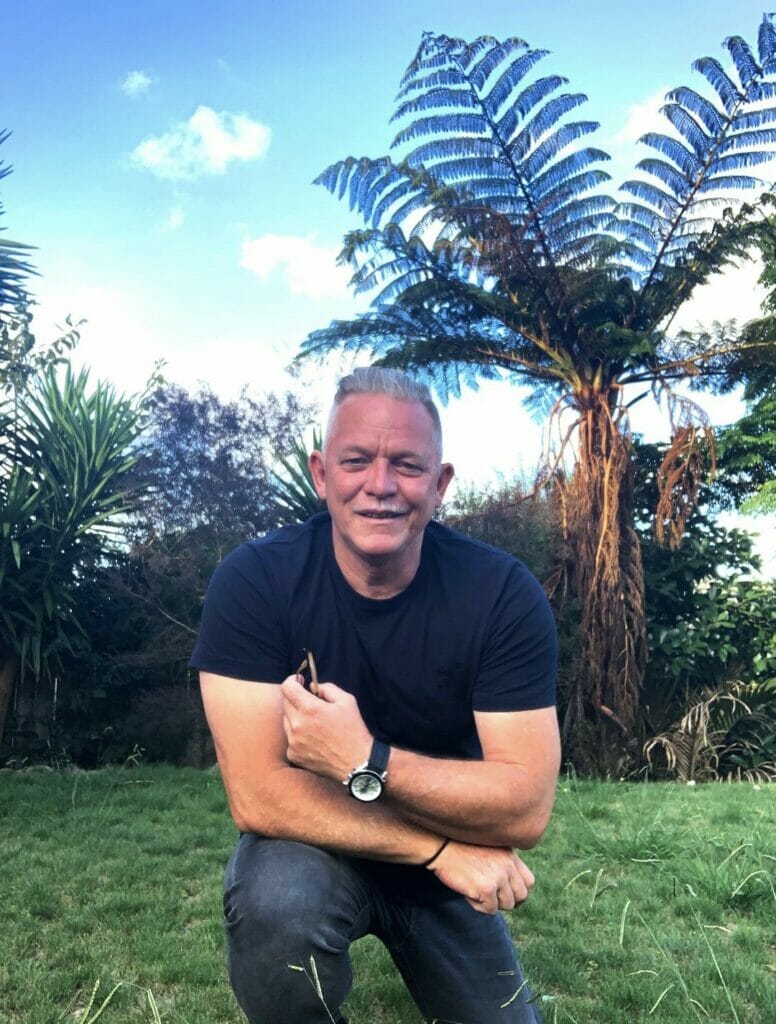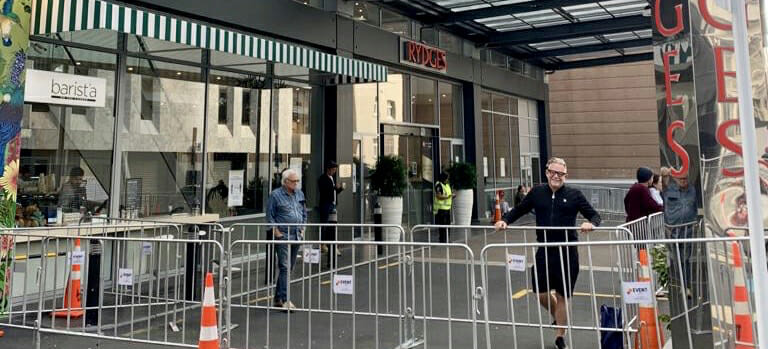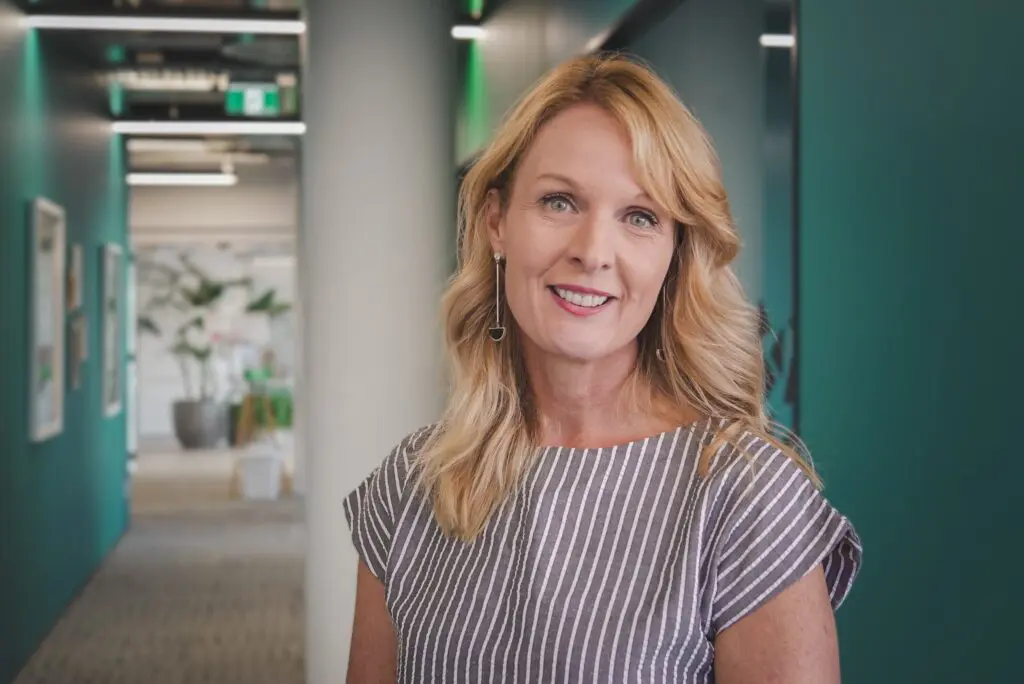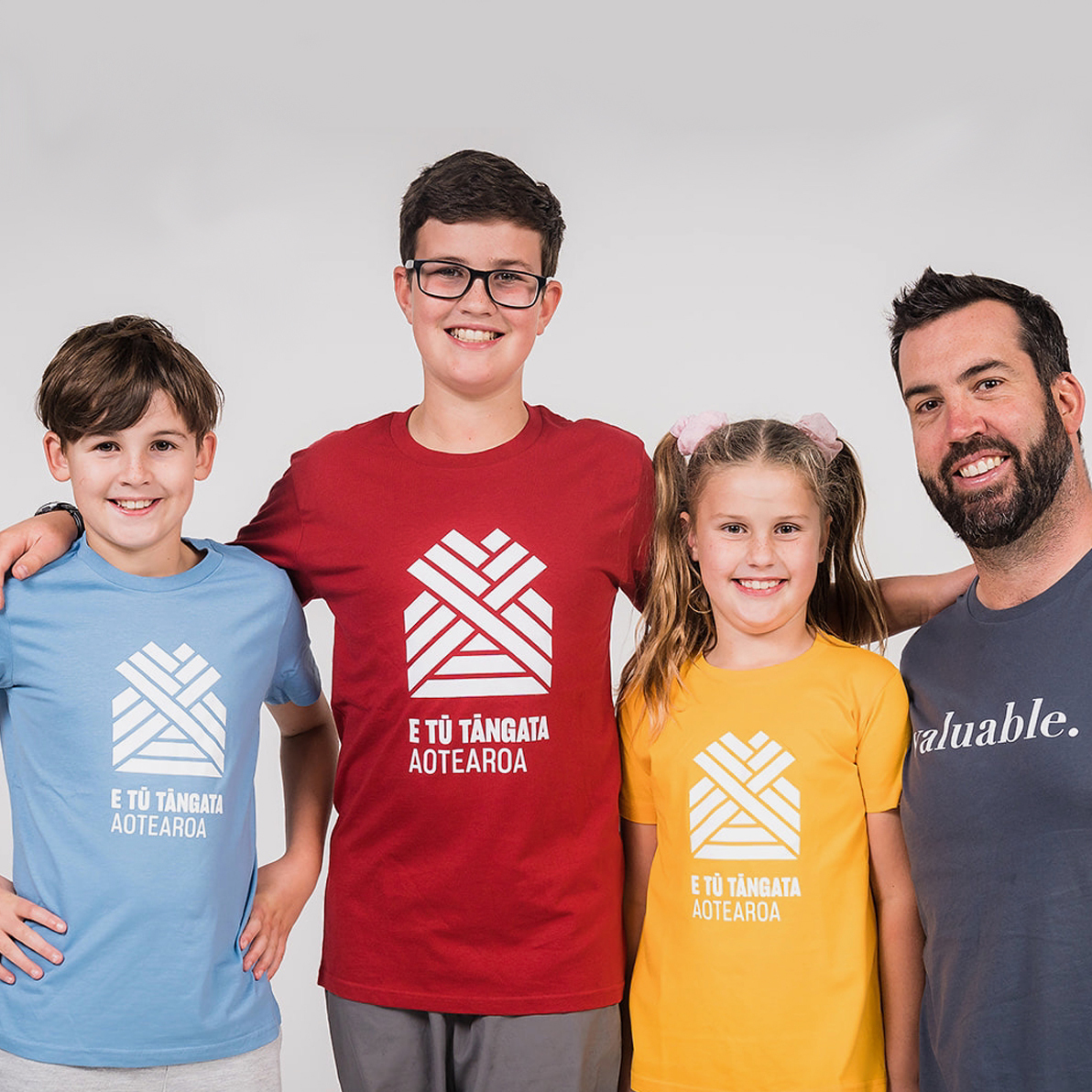Simon Adlam on reintegration, gratitude, and moving forward
The last time we spoke to Simon Adlam, he had just left MIQ. We spoke to him about what he’s been up to since then, including how he feels leaving the US, what he’s noticed has changed in Aotearoa since he’s been gone, and his thoughts on New Zealand’s unique growth opportunities in the arts space.
The last time we spoke, you were in managed isolation. How have you been since then?
I’ve now been in managed isolation for a second time, after a trip back to America. Managed isolation the second time around was much more regimented and strict, which is great. However one thing I took away with me is the complete lack of appreciation towards those working on the front line in these facilities.

On my last evening before I came out, I went to go and thank all of the staff at the hotel. While saying thank you, not only for keeping me safe, but my family and the rest of New Zealand, they were surprised. They explained that no one ever thanks them for the job that they do, and that I was one of the first ones. I was shocked at this, and I honestly expected more from my fellow New Zealanders. While it’s understandable that by the end of managed isolation, you’re eager to get out, we’re not brought up like this.
I was thinking about everyone who showed me some form of generosity during that time, and they’re all really young, from the armed forces to the hospitality staff. It’s really monotonous, hard work, it’s thankless, and a lot of them are ostracised from their families because of the risk that they pose. I thought, these New Zealanders are true heroes and patriots. They’re making huge sacrifices for the safety of all New Zealanders. That was my big thing that I stepped away from, and I thought there needs to be more conversations around this. There needs to be more support and appreciation for those working in those facilities.
What are you finding interesting about reintegrating yourself back into New Zealand?
There is so much energy thanks to Kea around returning talent, and this huge influx. What I’ve found really interesting this time back, a lot of my friends and colleagues who are trying to sustain their investments and businesses abroad from New Zealand are finding it really hard. I think that was a really interesting thing coming back to, where New Zealand businesses are trying to work their way forward while the rest of their world is shutting down.
In coming home, I’m finding more and more ways to connect with my past, with my childhood, family is a really deep connection to Aotearoa. I’ve had a month off over summer, and have recently travelled up and down the Kapiti Coast and I’m in many small towns, and they’re thriving! People are moving there, young families are setting up there, and incredible businesses are growing there. The quality of life there is just so much better, especially for families, and it’s affordable.
This time it feels a lot more about Aotearoa, and how it remains safe and connected. I’ve had a number of really great conversations about enterprise, rethinking what collaboration, asking a lot more questions about why we do things and how we can do things better. People seem to be really excited about the impact that returning Kiwis can have on the local economy.
What’s it like being away from the US right now, especially with so much going on there?
I don’t really talk about this very much, because it’s very scary, and this can make people defensive about protecting New Zealand. Before I left, ambulances were having to make life and death decisions about whether to take people to hospital because capacity was so low. No matter how rich or poor you are, the odds were really bad if you got sick. It was very isolating, and was probably the lowest point of the pandemic.
I’ve been home for six weeks, and I would have to say, I never knew what it was until now, but there is a feeling of survivor’s guilt. I’m the lucky one, my family is stuck in this really horrific place of life and death and it’s hard for me to disconnect because I’m constantly worrying about that. I feel like I have this immense privilege, but there is this feeling of “why me?” I think now compared to the last trip, I have a bigger sense of urgency to be here and to get set up and moving, and to move my household back, because it’s not getting better overseas.
You work in the arts. How does NZ compare globally, and what do you believe our unique growth opportunities are?
From all of the conversations we’ve had, the most interesting thing is that, sure we miss our tourists and international exhibitions, but what I think we’ve all found is that the answer really lies within Aotearoa. People are really starting to realise that there is a huge amount of investment and will in the country, and that this is the way forward. We have to start thinking in new ways. I think the whole country is starting to look in a new lens.
What are your hopes for the arts scene going forward?
In the future, it’s going to be very difficult to host big cultural projects, big exhibitions etc because getting them here safely and securely involves a lot of logistics which are harder to secure. Say international museums and galleries, they’re closing at a rapid rate because they need people to be there in person to operate. Libraries on the other hand are thriving because about 15 years ago they had a complete digital transformation. They can directly serve communities in real ways. There’s this movement to dramatically pivot, but it just seems like it’s not happening fast enough so the future really does seem uncertain.
Even though it’s business as usual here in New Zealand, the rest of the world is adapting and moving forward. New Zealand has the ability to continue on as business as usual. However, when the world eventually does open up again, we’re going to be in this outdated (or pre-Covid) place. The rest of the world is operating one way and we’re operating in another. So many people think that we’re going to go back to normal, and that’s just not going to be the case.
What advice would you give to Kiwis who are planning to make the trip home?
Plan, plan, plan and act. Setting up your financial life can take a while. Getting that sorted out before you arrive means that you can start running straight away, otherwise you can be stalled for 2-3 weeks depending on how big your household is.

Another piece of advice would be to be aware of changing travel routes and regulations. When I was coming home this time around, because of restricted travel routes I came through the Middle East, and unlike before you’re really cognizant that you’re travelling through different countries. You never used to think about that before. As I started moving, laws started to change. You might have left and been OK to land, and then while you’re travelling, that rule changed. This happened to me with Australia, where the next thing I know I get to the airport in Boston and they explain to me that I need extra documentation to transit. This ended up taking a couple of hours. By the time I got my formal approval I was well into transit, and by the time I got to Australia no one even knew about the new rules.
Finally, invest in building a relationship with Kea. Kea provides a lot of agency and tactical information that’s really important and helpful. Connecting people during this time is so important, and highlighting all of the incredible things that New Zealand has to offer since people may have been away is something that I’ve found extremely useful.
COMING HOME?
Resources
We’re here to support returning Kiwi. Here’s our list of resources to help you plan your return and next steps.
Jobs
Looking for a new role in New Zealand? Visit the Kea job portal and find your next career opportunity.

 MENU
MENU









